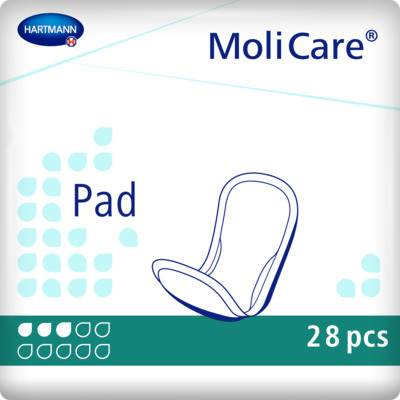Incontinence Advice
Learn how to control and prevent cystitis. (Bladder infection)
Cystitis, bladder infection, is a common issue that affects many people. In this article, we will discuss effective strategies to control and prevent cystitis while maintaining optimal urinary health. If you experience issues with urinary incontinence then we have plenty of incontinence pads for women and incontinence pants for women which can be used to help you manage your condition.

The best way to deal with cystitis is prevention. Therefore, by understanding what cystitis is, its causes, and symptoms, we can take steps to avoid it from happening frequently.
Causes of cystitis (bladder infection)
Cystitis is a urinary tract infection (UTI) that is often caused by bacteria. It tends to be common in women more than men, mainly due to some anatomical differences.
The female urethra, through which urine passes, is shorter than the male urethra and is situated closer to the anal opening. This makes it easier for bacteria from faeces to reach the bladder and cause an infection. Although less frequent, cystitis can also affect men, especially those suffering from enlargement or inflammation of the prostate.
It’s important to be aware of the potential triggers so you can take steps to prevent or treat this uncomfortable condition. Here are some common causes:
Stress – High levels of stress can weaken your immune system, which can make you more vulnerable to getting infections. Click here to learn more about how stress affects your bladder & gut.
Long-lasting antibiotic therapies – Extended use of antibiotics can disrupt your body’s natural balance of bacteria, potentially leading to cystitis.
Poor personal hygiene – Not maintaining proper cleanliness can increase the risk of bacteria entering the urethra and causing infection.
Strong intimate cleansers – They can irritate the sensitive tissues of the urinary tract.
Using tampons and other internal absorbents – Tampons sometimes cause irritation and make infection more likely.
What are the symptoms of cystitis?
Are you experiencing some discomfort while peeing? Let’s see if it could be cystitis. The most common symptoms of cystitis/bladder infection are:
- Pain, burning, or stinging when you pee
- Needing to pee more often and urgently than usual
- Urine that’s dark, cloudy, or strong smelling
- Pain low down in your stomach
- Feeling overall unwell
If you’re experiencing any of these symptoms, it’s important to consult your GP for a proper diagnosis and treatment.
Natural remedies that can help
When the first symptoms of cystitis appear, it is good to talk to your doctor who will recommend a urine culture test and may prescribe antibiotic therapy. Some natural remedies may also help counteract the symptoms of cystitis:
- Drink plenty of water to help the body to flush out the infection.
- Take warm baths but avoid soap and perfumed products as these may irritate the bladder.
- Avoid tight clothing.
- Use cotton linen.
- Take lactic ferments to rebalance the intestinal flora.
- Cranberry supplements may be useful because they have an anti-inflammatory effect.
- Take simple over the counter painkillers like paracetamol or ibuprofen.
- Do not hold urine for too long.
- Follow a healthy and balanced diet.
- Avoid alcohol, coffee and fruit juices as these may irritate the bladder. Learn more about how alcohol affects your bladder here.
What to Eat when you have cystitis?
It is important to follow a healthy diet, especially in the case of an irritated bladder. The health of the bladder is also influenced by the functioning of the intestine, so it’s important to eat probiotic foods as they support the immune system. These foods contain "good" bacteria and are fermented foods such as yogurt, sauerkraut, miso, kimchi, and kefir.
In addition, it is recommended to eat foods with an anti-inflammatory effect and foods that will support the immune system, including:
- Fruit: Blueberries, currants, and kiwis their anti-inflammatory effect. Watermelon and pineapple are recommended for their high potassium-content.
- Vegetables: especially the ones rich in water such as salad, cucumbers, chard, and celery. It is preferable to consume vegetables with little sodium but rich in potassium such as: cauliflower, fennel, carrots, lettuce, broccoli, spinach.
- Garlic and onion for their antimicrobial properties.
- Whole grains
- Fresh cheeses with low fat and aged
- Fresh fish
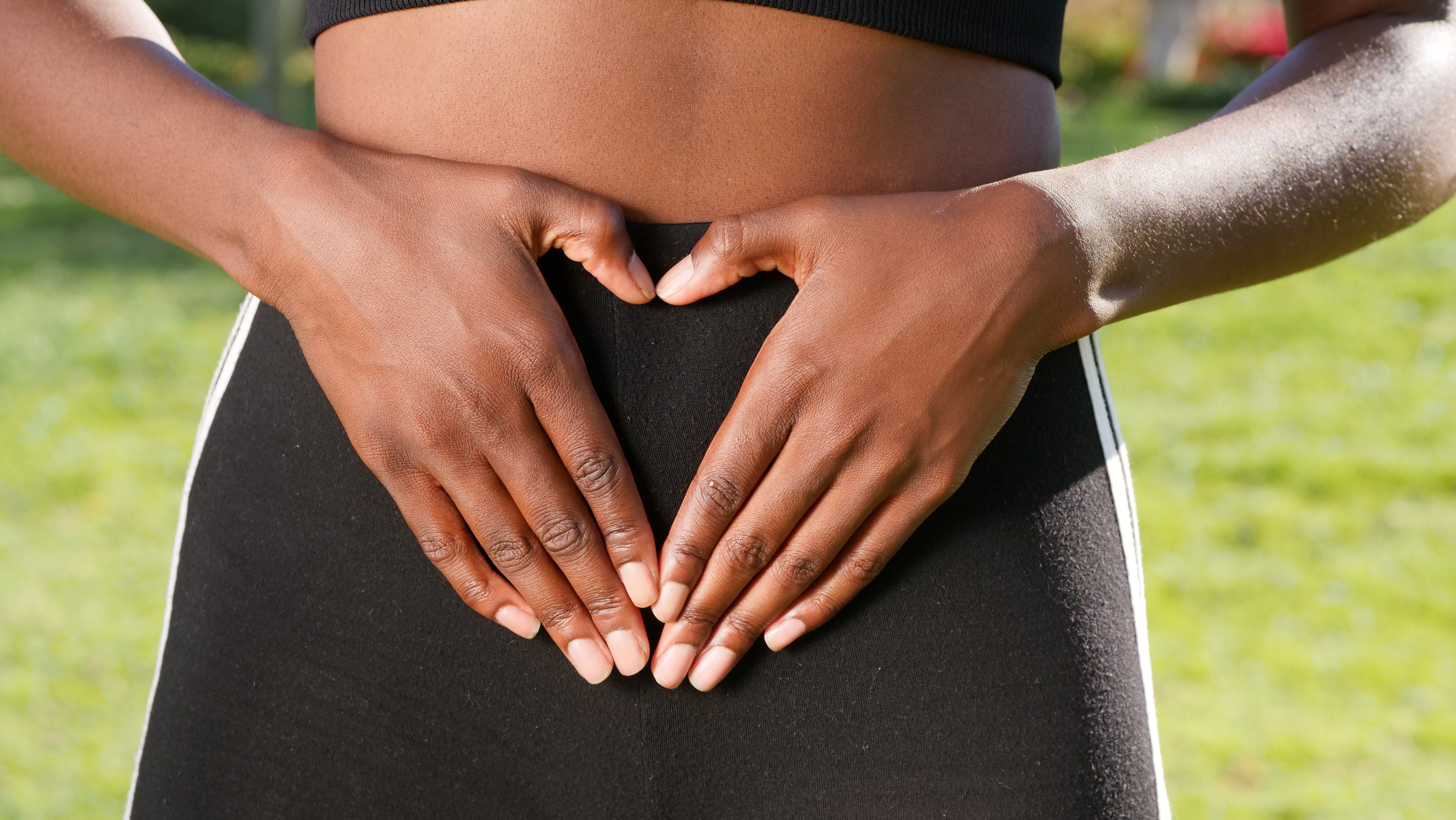
Tips for preventing cystitis
Did you know that by incorporating preventive measures and natural remedies into our lifestyles, we can minimise the impact of cystitis on our daily lives and maintain optimal urinary health? Prioritising prevention and addressing symptoms in time can lead to a healthier, more comfortable life free from the burdens of cystitis. Here’s what you can do:
- Choose Gentle Personal Care Products
When it comes to cleansing your intimate area, go for plain and unperfumed varieties of bubble bath, soap, and talcum powder. Avoid using products with strong fragrances that could irritate the sensitive tissue. Overall, just water is the best choice.
- Switch to showers
Choose showers over baths to minimise prolonged contact with the chemicals found in cleaning products. This simple switch can reduce the potential for irritation and help keep cystitis at bay.
- Urinate regularly and completely
Respond promptly to the urge to urinate and ensure you empty your bladder completely each time. This practice helps flush out any bacteria that might be present and prevents their multiplication, reducing the risk of cystitis.
- Stay hydrated
Drinking enough water is crucial for maintaining good urinary health. Adequate hydration may help hinder the growth of bacteria in your bladder, so make sure to stay well-hydrated throughout the day.
While cranberry juice has long been recommended for preventing cystitis, recent large-scale studies have indicated that its impact is not significant. Therefore, it may be worth exploring other preventive measures to reduce your risk effectively.
- Choose breathable underwear
Choose underwear made from breathable materials like cotton instead of synthetic fabrics such as nylon. Avoid wearing tight-fitting jeans and trousers, as they can create an environment which encourages bacterial growth.
Join Our Mailing List
Join our mailing list to receive advice, product updates, and offers straight into your inbox.
Sources
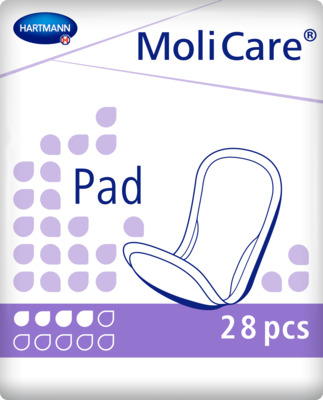
MoliCare Pad 4 Drops
<h2>Handy MoliCare Pad 4 Drops to Carry on the Go</h2> <p>Our MoliCare® Pad 4 Drops are an essential product for those experiencing slight incontinence, allowing you to regain control and live your busy and active life without the interference of bladder weakness. Designed for both men and women, this pad for men and women offers exceptional dryness and protection, ensuring your comfort and confidence.</p> <h2>‘Barely There’ Reassurance and Reliability</h2> <p>The MoliCare® Pad 4 Drops are slimline, discreet, and adjusted to fit your body seamlessly. It fixes securely inside your underwear, providing a ‘barely there’ comfort feel. With its soft and skin-kind fabric, along with a wide adhesive fixing strip on the backsheet, you can go about your day with the assurance of being protected against leakages.</p> <p>The absorbent core effectively prevents your skin from becoming too moist, while the elastic anti-leak edging adds an extra layer of security and peace of mind. Say goodbye to any worries about odours, as the MoliCare® Pad 4 Drops also neutralises odours to keep you fresh and confident throughout the day. Don't let incontinence hold you back from living life to the fullest.</p> <p>Ordering your MoliCare® Pad 4 Drops is hassle-free, as we offer fast and discreet delivery direct to your door. With our price match promise, you can trust that you're getting the best value for your money. Plus, enjoy free delivery on all orders over £40.</p> <p>If you need assistance in finding the perfect incontinence product for your needs, our friendly customer care team is here to help. Don't hesitate to reach out to us at 0800 028 9470. Take control of your life with the reliable protection and comfort of the MoliCare® Pad, alongside other <a href="https://www.hartmanndirect.co.uk/incontinence-products/incontinence-pads" style="color:#0563c1; text-decoration:underline">incontinence pads</a>.</p> <p> </p>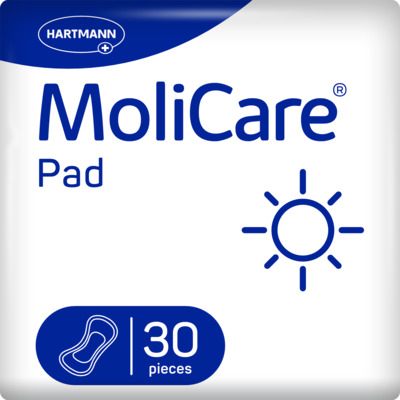
MoliCare Pads for Day
<h3>Incontinence pads for protection during the day </h3> <p>Even slight bladder weakness can be a burden in everyday life. There is a simple and affordable solution for this: MoliCare® Pad Day delivers discreet, reliable protection that helps you manage life’s daily challenges. </p> <p>The highly absorbent core inside the incontinence pads quickly locks away urine to ensure a pleasantly dry feeling on the skin. At the same time, it neutralises unpleasant odours. </p> <p>MoliCare® Pad Day are designed for discreet protection during the day. You can recognise the daytime incontinence product by the sun symbol on the packaging. They complement MoliCare® Pad Night incontinence pads which provide reliable protection at night. </p> <h3>Who is MoliCare® Pad Day suitable for? </h3> <p>MoliCare® Pad Day incontinence pads are suitable for people with mild bladder weakness. They leak anywhere from a few drops to 100 ml of urine between visits to the toilet. </p> <p>Incontinence pads are suitable for active women and men users whose mobility is not restricted. They can go to the toilet independently and without assistance. </p> <h3>Cheap incontinence products: comfortable, discreet protection </h3> <p>The incontinence pads have a highly absorbent core and odour control to keep you feeling fresh and comfortable. Thin and flexible, MoliCare® Pad Day are designed to be discreet, invisible under your clothing. Thanks to the wide adhesive strip, they remain securely in place even during sport. The incontinence pads are made from soft, breathable material so you feel comfortable all day. </p> <p>You usually need no more than two MoliCare® Pad Day incontinence pads during the day and one MoliCare® Pad Night incontinence pad for undisturbed sleep. This gives you a low cost yet high-quality round-the-clock supply of incontinence pads from HARTMANN. </p> <h3>We are HARTMANN </h3> <p>MoliCare® is HARTMANN’s extensive range of continence care. For over 40 years, we have been developing effective, reliable products that help people manage the challenges of living with incontinence. Our aim is to provide the right solution for every need. </p>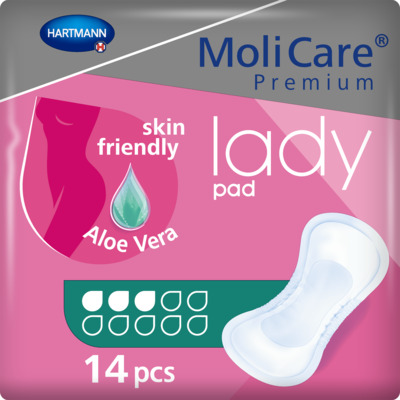
MoliCare® Premium Lady Pad 3 Drops
<h2>Lightweight Incontinence Solutions</h2> <p>The MoliCare® Premium Lady Pad 3 Drops is the perfect solution for women who are looking for a slim, discreet and comfortable way to manage slight bladder incontinence situations. The pad is small and lightweight, so it's easy to carry with you on the go. And the odour neutralisers help to keep you feeling fresh and confident all day long.</p> <p>With a fast and reliable delivery, you can apply your MoliCare® Premium Lady Pad 3 drops in next to no time. With their compact appearance, they are easy to apply and are barely noticeable when fitted under your underwear. For extra skin-friendly protection, we equip these products with Aloe Vera to maintain a healthy skin, as well as absorbent and secure technology. It is truly one-size fits all with this range!</p> <h2>Maintain peace of mind</h2> <p>These lady pads contain 14 pieces per bag, are set at an affordable pricing, and will prevent leakages, maintaining peace of mind in all social situations.</p> <p>If you require additional information, do not hesitate to get in touch with our reliable customer service team, who are ready on hand to answer your questions. If you're looking for a reliable pad that will help you stay dry and comfortable, the MoliCare® Premium Lady Pad 3 Drops is a great option. Order yours today!</p>